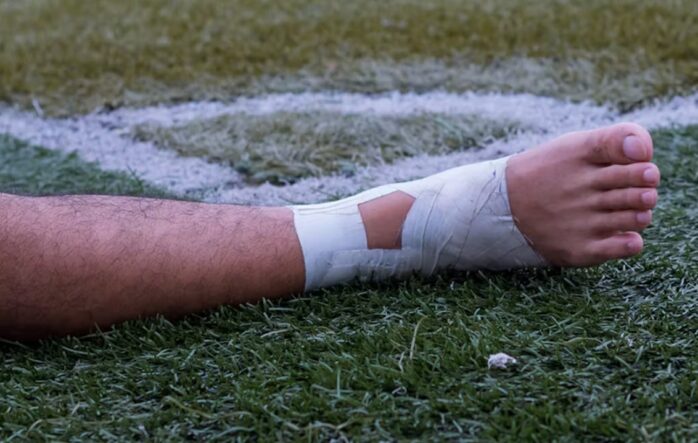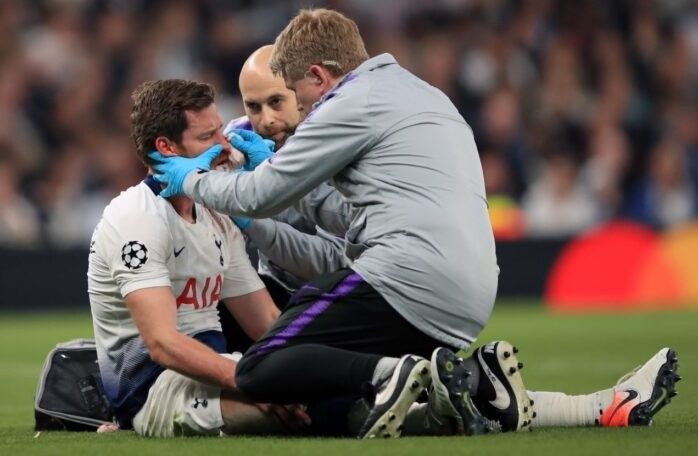No matter the level of participation in sports, whether professional athletes or casual evening joggers, individuals often underestimate its effects on their bodies.
From fatigue to impact injuries, participating in athletic activities puts your body through significant strain.
Sports injuries range from minor everyday aches to more serious conditions that require medical intervention.
This post will cover common sports injuries and treatments so you can feel your best while enjoying any physical activity.
Contents
Fractures

Fractures can be an excruciatingly painful experience that affects people of all ages and physical activity levels, from children to the elderly and even athletes.
Signs and symptoms of fracture can range from visible swelling and deformity to difficulty moving or supporting weight. Treating fractures quickly and appropriately is crucial in order to avoid further injury and speed healing.
Treatment options range from immobilizing the affected area with a cast or brace to pain management or, in extreme cases, surgery.
Preventing fractures involves adopting healthy eating and exercise habits, wearing protective gear during physical activities, and being aware of potential hazards in your environment.
By taking steps to avoid fractures and seeking immediate medical care if necessary, you can ensure a lifetime of healthy bones.
Fear should never keep you from seeking medical help when it comes to fractures. You could be back in action quicker than anticipated with proper diagnosis and treatment.
For your well-being and protection, remember to wear appropriate equipment while monitoring physical activity levels so you can remain healthy no matter which activities you choose.
With these preventive steps in place, your body can remain protected no matter which activities it chooses to participate in.
Spinal Cord Injuries
Spinal cord injuries can be frightening because of their long-term potential damage.
Signs like difficulty walking, loss of sensation or paralysis, abnormal gait patterns, or difficulty with balance may indicate someone has sustained a spinal cord injury. Treatment will depend on the severity of the injury.
Options could include immobilizing it with bracing or casts, physical therapy sessions, and, in extreme cases, surgery. Spinal cord injuries are devastating yet recoverable with proper care and treatment.
Companies like bioxcellerator.com offer stem cell treatments scientifically demonstrated to alleviate symptoms associated with spinal cord injuries, offering hope in medicine’s quest to treat them more effectively.
Spinal cord injuries can also be avoided through preventative measures. Be sure to wear protective gear when engaging in any physical activity.
Avoid activities that are too strenuous for your skill level or pose too great a risk. Stay aware of potential hazards around you and take precautions.
These simple measures could save lives from spinal cord injuries.
Rotator Cuff Injuries

Rotator cuff injuries involve muscles and tendons surrounding the shoulder that provide stability when moving. Strains to these tissues may range from minor strains to serious tears leading to significant pain.
Symptoms include stiffness, swelling, as well as difficulty moving the affected arm or supporting weight with it.
Treatment options for such injuries include rest and physical therapy for healing, while corticosteroid injections may help manage pain levels. Strengthening exercises may reduce future incidents as well.
Rotator cuff injuries can happen with any physical activity, but there are ways to decrease the chances of encountering one. Warming up before exercising and strengthening exercises targeting the rotator cuff muscles are effective in helping prevent strain on your shoulder.
Strengthening exercises targeting those same rotator cuff muscles are another great way to build overall strength and lower injury risks.
Furthermore, using proper form when engaging in athletic activities such as baseball is vital in protecting against these injuries as well. Taking just a few precautionary measures could decrease the risks while remaining.
Tendonitis
Tendonitis is a sports injury caused by overuse or repetitive motion that leads to inflammation of tendons. Symptoms may include pain, swelling, and stiffness in an affected tendon that should be visible.
Treatment typically entails rest, icing the affected area, and physical therapy sessions to promote healing.
For future prevention, proper form must be observed during physical activities, while frequent breaks must also be taken between workouts to avoid overuse injuries. Eating foods rich in proteins will keep strong tendons resilient.
Tendonitis can be an excruciatingly painful experience, but with proper diagnosis and treatment, you can return to physical activities much more quickly than expected.
Ensure that preventative measures such as warming up before exercise and tracking physical activity levels are in place to avoid tendonitis.
With these measures in place, you’ll remain healthy and protected. So that when activity comes knocking, there will be no worries over its discomfort.
Concussion

Concussions are a type of traumatic brain injury caused by any blow or jolt to the head, typically producing symptoms like confusion, headaches, nausea, and difficulty focusing.
Treatment should involve resting both physically and mentally until symptoms have subsided.
Medical assistance should be sought immediately after experiencing an impact that causes head trauma, due to the difficulty of diagnosis without appropriate tests.
Prevention methods include avoiding activities with a high risk of head injury as well as wearing protective equipment when playing contact sports such as football or basketball.
Concussion injuries can be both painful and debilitating. However, with proper diagnosis and treatment, you can return to being active more quickly than anticipated.
Stay aware of any symptoms related to concussions so you can seek medical attention as soon as necessary. Prevention methods also play a vital role.
Fractures, spinal cord injuries, rotator cuff injuries, tendonitis, and concussions require special attention and treatment. It is crucial that you remain aware of their symptoms as well as take preventative steps against further harm.
You can return to life as usual without experiencing the associated discomfort and stay safe while enjoying any activity with proper diagnosis and treatment.

For information on how to prevent fractures and other sports-related injuries, consult with a physical therapist who can identify areas of risk and create an individualized plan to mitigate those risks.
Furthermore, many health insurance policies cover physical therapy sessions, making them more affordable than ever. With their guidance and help, you can stay safe while engaging in any activity of your choosing.
















